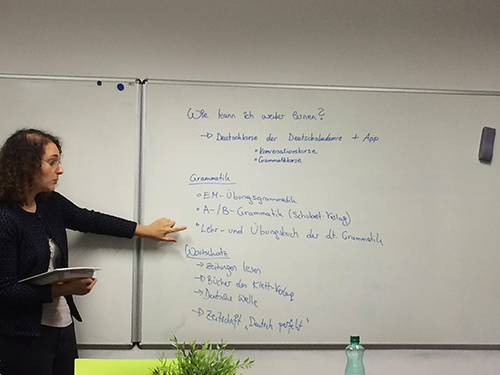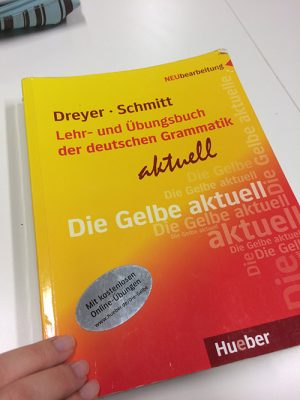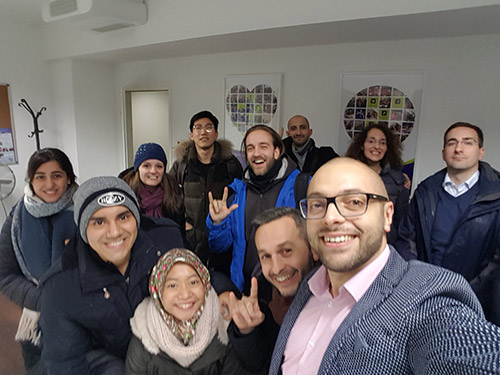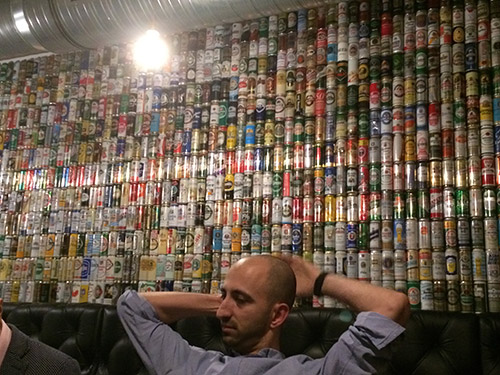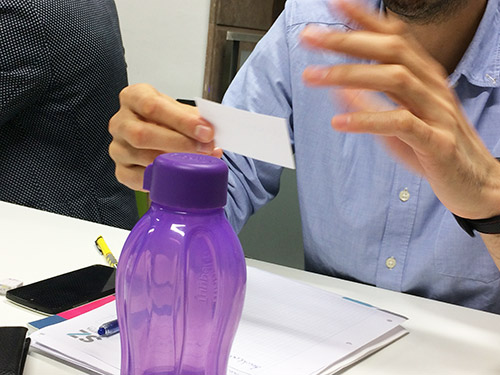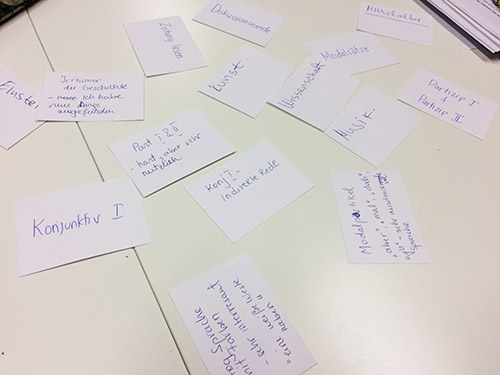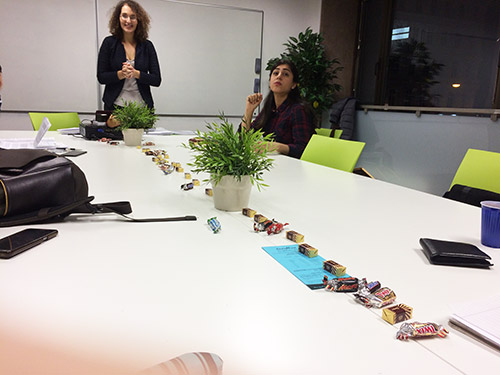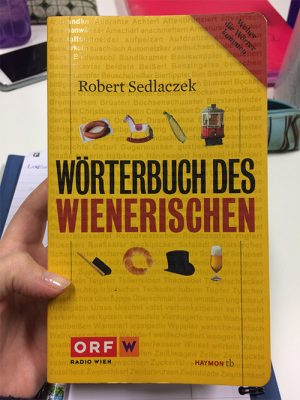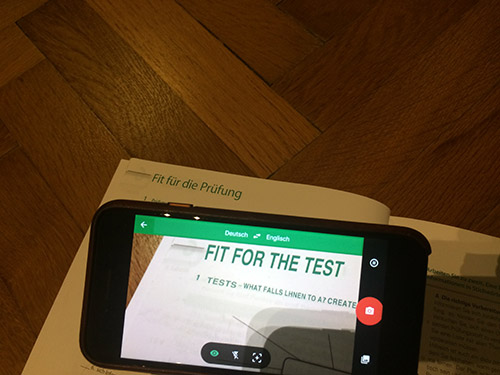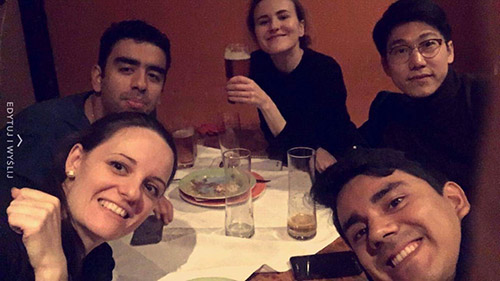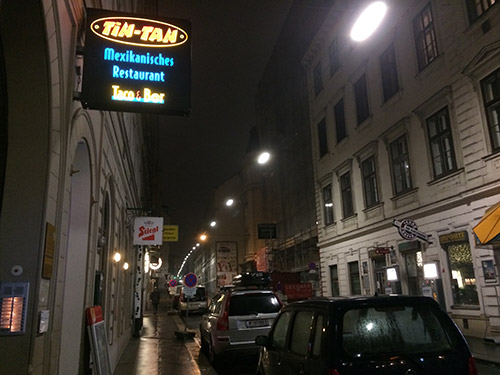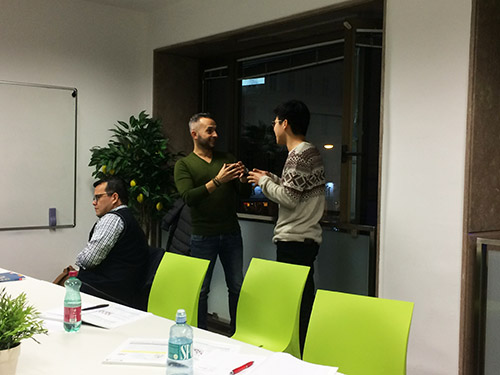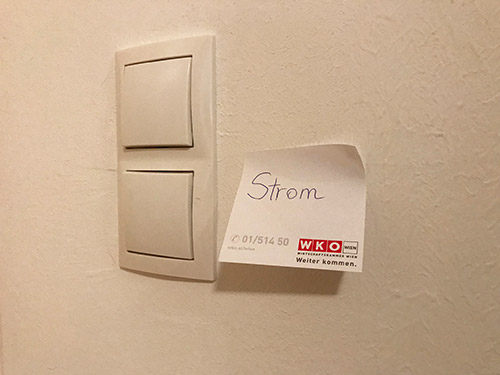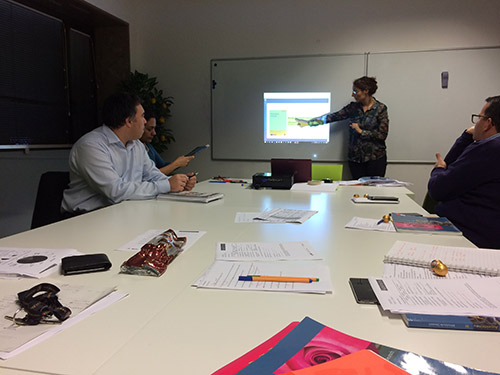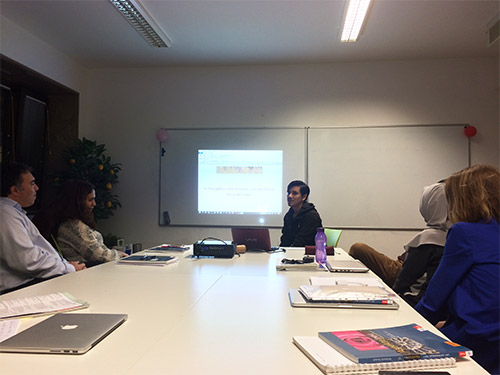As I mentioned in the last blog post, yesterday was the final day of class. We completed the B2.2 class and, as usual, at the end we received documentation of attendance, as well as some useful tips, for learning German from now on.
Our teacher recommended a comprehensive Grammar book, called Lehr-und Übungsbuch der deutschen Grammatik, from Hueber, written by Dreyer & Schmitt. I got a chance to flip through it and it talks about every part of speech and how it is used in the German language. Very useful if you like your information all structured and easy to find.
Afterwards we took a picture together, to commemorate the occasion and went out to celebrate to Bier & Biereli, a very quaint beer-oriented bar, just 50 meters away from the Deutsch Akademie. Here we toasted, exchanged stories and found ways to keep in touch in a very cool setting, with hundreds and hundreds of beer cans on the walls, as well as the “Bier ist gesund” motto by the bar. A very fun and likeable group that I hope I’ll run into in future Deutsch Akademie classes.

